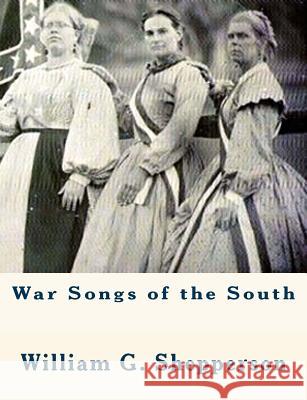War Songs of the South » książka
War Songs of the South
ISBN-13: 9781508771999 / Angielski / Miękka / 2015 / 240 str.
SOUTHERN Independence has struck the lyre as well as unsheathed the sword. That it has inspired many a song no less truly poetical than intensely patriotic, our newspapers amply testify. But the newspaper can give only an ephemeral life to "thoughts that breathe and words that burn." The book embalms if it does not immortalize. A few years ago, when an attempt was made to collect the ballads and songs of the Revolution of '76, much regret was a occasioned by the fact that many admirable ones had been but partially preserved by tradition, and that others, perhaps, of equal merit, had been entirely lost. Shall we not try to insure against so deplorable a fate the songs of our own revolution? We are in the midst of a revolution in which the instinct of Southern women has anticipated the logic of our statesmen and the ardor of our soldiers. The heart of GERTRUDE, in SCHILLER'S "Wilhelm Tell," beats in the bosom of every Southern wife. And more than one fair daughter of the South, adopting the aphorism of old FLETCHER of Saltown, have contributed to this collection of War Songs. Many of the songs have been composed by soldiers in camp, and nearly all have particular reference to some event of the war, some of battle, or individual act of heroism. Written contemporaneously with the achievements which they celebrate, they possess all the vitality in force of the testimony of eyewitnesses to a glorious combat, or even of actors in it. The spontaneous outburst of popular feeling, they give the lie to the assertion of our enemy that this revolution is the work of politicians and party leaders alone. Through the Poet's Corner in the newspaper, they have sped their flight from and to the heart and mind of the people. They showed which way the wind was blowing, when war arose "a little cloud like a man's hand," and, black as the heaven may now appear, they bravely sing above the storm, soaring so high that their wings are brightened by the sun beyond the clouds. They cannot fail to challenge the attention of the philosophic historian by their origin and their influence. It was no false oracle at Delphi which bade the alarmed Lacedaemonians seek a general at Athens; for the songs of lame TYRTAEUS, the schoolmaster, whom the Athenians contemptuously sent to them, reanimated their courage, and led them on to victory over the Messinians. In every age, martial songs have wrought wonders in struggles for national independence."
Zawartość książki może nie spełniać oczekiwań – reklamacje nie obejmują treści, która mogła nie być redakcyjnie ani merytorycznie opracowana.











